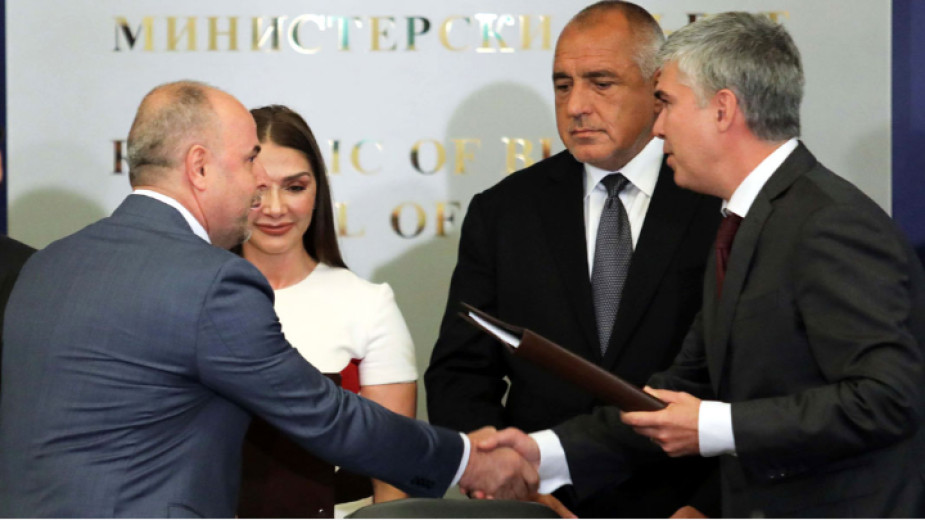
Bulgartransgaz and the Saudi company Arkad signed at the Council of Ministers building a contract for construction of the extension of the Turkish Stream gas pipeline from the Bulgaria-Turkey border to the Bulgaria-Serbia border, which will put an end to all rumors, speculations and doubts whether this important and strategic for Bulgaria, as well as for Central and Eastern Europe pipeline project will run through Bulgaria’s territory on its way to Serbia, Slovakia, Hungary and Austria.
Bulgaria’s Premier Boyko Borissov prefers to call this project Balkan Stream and the Russian side is not against this name. According to this contract, the Russian gas coming from Turkey via the Turk Stream pipeline will enter Bulgarian territory at the Bulgaria-Turkey border. Bulgaria’s leg of the Turkish Stream gas pipeline between the Bulgaria-Turkey and the Bulgaria-Serbia borders will be 474 kilometers long. Now, the construction of Bulgaria’s stretch of Turk Stream can start and the first gas quantities may start flowing along the pipeline as early as 2021. The construction of the Bulgarian section of Turk Stream will cost EUR 1.1 billion and the construction deadline is 615 days.
What Bulgaria and the Central European countries stand to gain and lose?
At first glance, Bulgaria does not gain much from this project. The annual gas transit fee will amount to nearly EUR 100 million. In other words, the construction costs will pay off in about 10 years or so. On the other hand, Bulgaria will remain a key factor in Europe’s energy sector and will continue transiting gas to many European countries. Moreover, the new gas pipeline proves that the intentions and the ideas of the Bulgarian authorities to turn Bulgaria into a gas distribution hub in the region and Eastern Europe are right and expedient. In particular, the Bulgarian authorities are planning to launch the Balkan Hub gas distribution project. Balkan Hub will receive gas from various sources and gas suppliers and sell gas quantities to different clients.
So far, Bulgaria had Russian gas only, although its attempt to buy liquefied gas from the USA turned successful. This country also signed a contract for the delivery of 1 billion cubic meters of gas from Azerbaijan as of 2020. The Bulgaria-Greece gas interconnector, which is also financed with EU money, will be built soon. It will allow Bulgaria to buy gas from the USA, as well as from the Middle East and the Mediterranean countries. These options will bring financial benefits both for the country and for its citizens who will be able to buy gas at a more competitive price, because part of the gas quantities transited through Bulgaria’s extension of Turk Stream will be for local consumption, which will encourage the Bulgarian households to gasify their homes. Besides, diversification of energy supplies means energy security. The new gas pipeline will also boost Bulgaria’s economy and the economy of the Central European countries which will be supplied with gas from the new gas pipeline as well.
English version: Kostadin Atanasov
In Brussels, Bulgaria and North Macedonia reaffirmed their commitment to continue the construction of Railway Corridor No. 8 under the TEN-T Regulation, reported the European Commission’s Directorate General for Neighborhood Policy and Enlargement..
A Taiwanese technology giant is negotiating to build a large production facility on the territory of the Trakia Economic Zone near Plovdiv, announced caretaker Minister of Innovation and Growth Rosen Karadimov. He was briefed with the progress of the..
A Japanese-Bulgarian business forum is being held in Sofia, organized jointly by the Japan External Trade Organization (JETRO ) and the Bulgaria Invest Agency . "I am leading a delegation of a hundred people, a fact that speaks volumes about..

+359 2 9336 661
